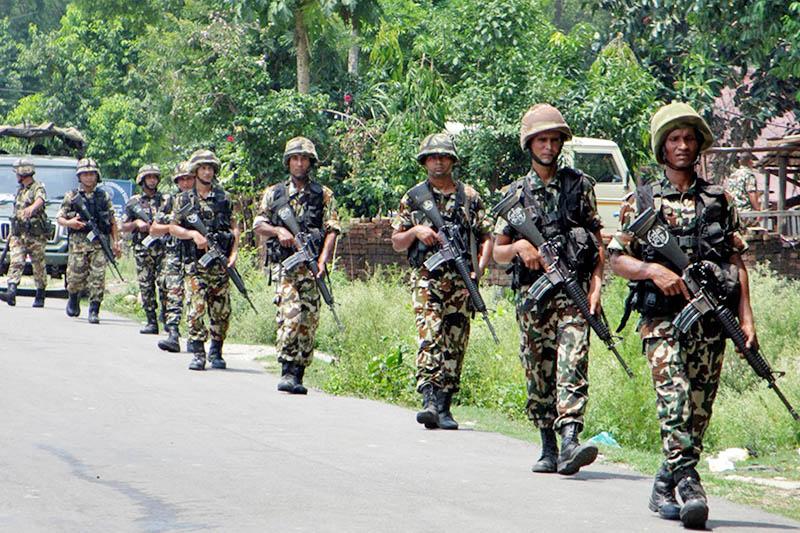Fast Track alignment should not be changed: Nepali Army
Kathmandu, November 30
The Nepali Army (NA) has said that the previous alignment of the 76.2-kilometre-long Fast Track project that starts from Khokana of Lalitpur should not be changed even if there are fresh protests held by the locals.
The NA has said that Khokana is a more appropriate starting point than the nearby Pharsidole village, which had been considered as an option as the starting point of the Kathmandu-Tarai Fast Track after locals staged protests against the project being constructed from Khokana.
Presenting its argument during the meeting of the Development and Technology Committee of the Federal Parliament today, NA stated that it would be difficult to change the alignment of the project now.
“If the government insists on changing the alignment then we will follow the government’s directive, however it would not be a feasible decision,” said Chief of the Engineering Department of Nepali Army Major General Yogendra Khand.
According to Khand, the Nepali Army has already disbursed the compensation money for 51 per cent of the land that was acquired in Khokana for the project and compensation for the remaining 49 per cent land will be distributed after talks are finalised with the landowners.
He further added that if the alignment is changed and Pharsidole is selected as the starting point of the Fast Track then the government would have to spend more as more land would need to be acquired. “Moreover, the government will also have to pay for physical structures that will have to be taken down in Pharsidole.”
Meanwhile, the NA has also appealed to the high-level administrative and political leaders to facilitate and create a conductive environment to resume the construction process.
The House panel had called Nepali Army for a meeting after locals of Khokana protested the government’s plan claiming the construction works would destroy their culturally rich settlement.
The indigenous Newar communities of Khokana and Bungamati are concerned about the damage that the Fast Track construction could cause to their property, land and cultural rights. On the other hand, residents of other places through which the expressway will be constructed want the project to be started as soon as possible.
Earlier, the government had planned to remove the residents of Khokana forcefully by using the security mechanism, but it later backtracked from that decision after facing a lot of opposition from all quarters.
Due to the conflict between the government and the communities of Khokana, the fate of the project is still uncertain.
Nepali Army has been assigned full responsibility to execute the Fast Track project, which it has segregated into three segments. Out of the 76.2-kilometre-long expressway, it plans to construct 17 km on its own, hire dependable Nepali contractors for 37 km of the stretch and sign up foreign contractors for the remaining 22.2 km of tunnel and bridge sections.
Meanwhile, the Nepali Army has awarded the contract to conduct detailed project report (DPR) of Kathmandu-Tarai Fast Track to South Korean joint venture company Yooshin and Pyunghwa on September 19.
While the Korean JV company will have to submit the DPR by January, the project is expected to be completed four years after the DPR has been finalised.






